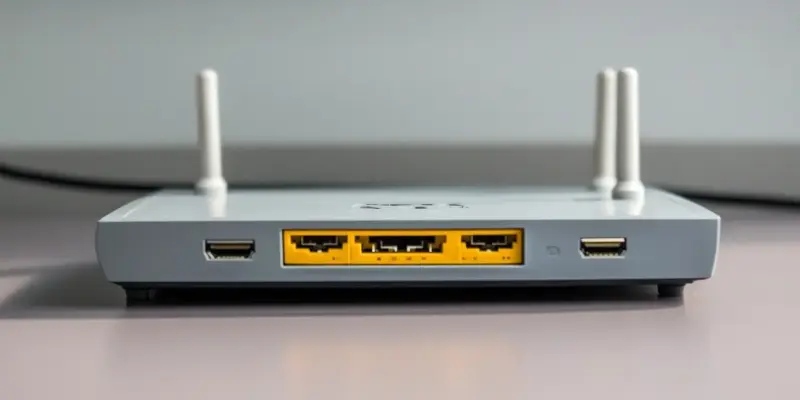The U.S. Cybersecurity and Infrastructure Security Agency (CISA) has issued an urgent advisory concerning a critical command injection vulnerability (CVE-2023-20118) found in Cisco Small Business RV Series Routers. The vulnerability is actively being exploited in the wild, posing significant risks to sensitive networks. This alarming flaw, which scores 6.5 on the CVSS (Common Vulnerability Scoring System), affects several end-of-life (EoL) models, specifically RV016, RV042, RV042G, RV082, RV320, and RV325. The root cause is improper validation of user input in HTTP packets, which permits authenticated attackers to execute arbitrary commands with root privileges, potentially leading to data breaches and unauthorized network access.
Vulnerability Details and Risks
Affected Models and Exploitation in the Wild
The affected models, which are part of Cisco’s Small Business RV Series Routers, have been out of official support for some time. Nevertheless, these devices are still widely used in many networks, often due to cost-saving measures or the operational difficulty of replacing hardware. This makes their vulnerabilities particularly concerning as they remain prominent targets for cyber attackers. The vulnerability, classified as CVE-2023-20118, involves improper validation of user input in HTTP packets, a flaw that allows authenticated attackers to execute arbitrary commands with root privileges. Given the severity and ease of exploitation, this vulnerability poses immediate and significant risks to network security.
Attackers exploiting this vulnerability can gain control over affected devices, leading to extensive network compromises. They can manipulate network traffic, intercept communications, or deploy further malicious payloads, escalating the risk of comprehensive data breaches and unauthorized network access. This threat is intensified by the nature of these routers, which often sit at the gateway points of networks, making them critical components of network infrastructure. By exploiting this vulnerability, attackers can disrupt business operations, access sensitive data, and cause widespread damage to the targeted organization.
Mitigation Recommendations
To mitigate the risks associated with CVE-2023-20118, Cisco has advised disabling remote management on the RV320 and RV325 routers and blocking ports 443 and 60443 on RV016, RV042, RV042G, and RV082 models. These recommendations aim to limit exposure by restricting access to the web interface to local networks only. However, while these measures can reduce the attack surface, they do not wholly eliminate the vulnerability, leaving a significant degree of risk still present. Organizations might find these measures a temporary fix at best, as threat actors continue finding ways to bypass such restrictions.
Given the severity of the threat, organizations are also encouraged to consider replacing these outdated routers with current, supported models, such as the RV340/RV345 series. Upgrading to newer hardware not only ensures compliance with the latest security updates but also strengthens the network’s overall defense mechanisms. Cisco’s refusal to patch the identified vulnerability due to the end-of-life status of these models underscores the importance of maintaining up-to-date hardware. Investing in modern, supported devices is a crucial step toward securing network infrastructure and protecting sensitive information from malicious activity.
Broader Implications
Legacy Hardware in Operational Environments
This incident highlights the systemic risks posed by legacy hardware within operational environments. Despite previous advisories for similar flaws, many organizations continue to rely on these outdated devices, often due to financial constraints or operational inertia. The reliance on such obsolete hardware is not a new problem. Past issues, such as the 2024 XSS flaw (CVE-2024-20362) in the same series of routers, demonstrated similar vulnerabilities, yet many organizations failed to take proactive measures. These repeated vulnerabilities indicate a broader challenge in the cybersecurity landscape where legacy systems continue to pose significant threats.
Organizations must recognize the inherent risks associated with using unsupported and outdated hardware. While the initial cost-saving appeal of retaining legacy devices may seem advantageous, the long-term security risks and potential for catastrophic breaches far outweigh these savings. It becomes essential to assess the entire network infrastructure, identify all instances of legacy equipment, and prioritize their replacement or segmentation to mitigate risks. Addressing these broader implications involves not only technical solutions but also fostering a security culture that prioritizes proactive measures and regular audits.
Urging for Immediate Actions
CISA has underscored the critical nature of the CVE-2023-20118 vulnerability by adding it to its Known Exploited Vulnerabilities (KEV) Catalog. Federal agencies are mandated to address this vulnerability under Binding Operational Directive (BOD) 22-01 within a strict 21-day timeframe. This directive aims to enforce rapid remediation actions to protect sensitive federal networks from potential exploitation. In addition to federal agencies, private organizations are also urged to prioritize mitigation efforts to prevent the exploitation of their networks by threat actors capitalizing on this vulnerability.
Immediate actions must be taken to audit networks for the presence of affected routers and implement strict access controls. Network segmentation becomes vital to isolate vulnerable devices and minimize potential impact. Moreover, continuous monitoring of logs for unusual HTTP requests can help in early detection of exploitation attempts. As edge devices like routers increasingly become targets for cyberattacks, adherence to CISA’s directives and best practices for cybersecurity is essential for ensuring modern and resilient defenses.
Steps Towards Enhanced Security
The U.S. Cybersecurity and Infrastructure Security Agency (CISA) has issued a critical advisory about a significant command injection vulnerability, tagged CVE-2023-20118, impacting Cisco Small Business RV Series Routers. This vulnerability, which actively endangers sensitive networks, is currently exploited in the wild. With a CVSS score of 6.5, this significant flaw affects several end-of-life (EoL) models, specifically RV016, RV042, RV042G, RV082, RV320, and RV325. The issue stems from the improper validation of user input within HTTP packets. This oversight enables authenticated attackers to execute arbitrary commands with root privileges, leading to possible data breaches and unauthorized network access. Given the severity of this vulnerability, CISA urges immediate attention and mitigation efforts to safeguard affected networks. Administrators should review their configurations thoroughly and apply necessary patches or consider upgrading to supported devices to protect their systems from potential exploitation.

